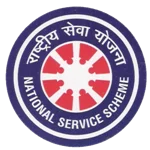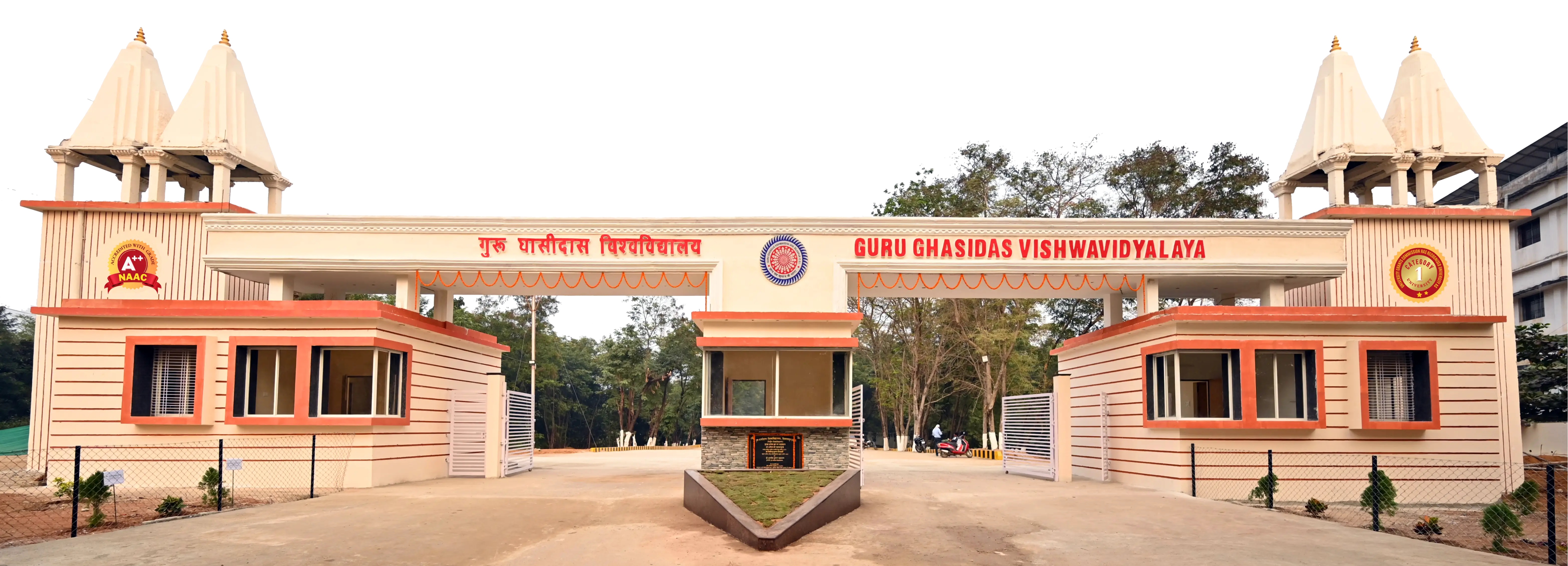National Service Scheme (NSS)
Menu
About National Service Scheme (NSS)
The scheme, popularly known as NSS, was launched in Gandhiji’s centenary year 1969. The primary aim of the scheme was developing students' personality through community service.
Overall, NSS was aimed to give an extension dimension to the higher education system and orient student youth to community service while they are studying in educational institutions. The educated youth, who are expected to take the reins of administration in the future, are often unaware of the problems of the village/slum communities and in certain cases, indifferent to their needs and problems.
Therefore, it is necessary to arouse the social conscience of students and provide them with an opportunity to work with the people in the villages and slums. It is felt that their interaction with common villagers and slum dwellers will expose them to the realities of life and bring about a change in their social perception.
Objective
- Understand the community in which they work.
- Understand themselves in relation to their community.
- Identify the needs and problems of the community and involve them in the problem-solving process.
- Develop among them a sense of social and civic responsibility.
- Acquire leadership qualities and democratic attitude.
- Develop capacity to meet emergencies and natural disasters and practice national integration and social harmony.
NSS Motto
The motto or watchword of the National Service Scheme is: ‘NOT ME BUT YOU’. This reflects the essence of democratic living and upholds the need for selfless service and appreciation of others’ points of view. It also emphasizes consideration for fellow human beings. It underlines that the welfare of an individual is ultimately dependent on the welfare of society as a whole. Therefore, it should be the aim of NSS to demonstrate this motto in its day-to-day programme.
NSS Symbol
The symbol of the National Service Scheme is based on the ‘Rath’ wheel of the Konark Sun Temple situated in Odisha. These giant wheels of the Sun Temple portray the cycle of creation, preservation, and release, and signify movement in life across time and space. The design of the symbol, a simplified form of the Sun-chariot wheel, primarily depicts movement. The wheel signifies the progressive cycle of life. It stands for continuity as well as change and implies the continuous striving of NSS for social transformation and upliftment.
NSS Badge
The NSS symbol is embossed on the NSS badge. The NSS volunteers wear it while undertaking any programme of community service. The Konark wheel in the symbol has eight bars which represent the 24 hours of the day. Hence, the badge reminds the wearer to be in readiness for service to the nation round the clock. The red colour in the badge indicates that the NSS volunteers are full of blood — lively, active, energetic, and full of high spirit. The navy blue colour indicates the cosmos, of which the NSS is a tiny part, ready to contribute its share for the welfare of mankind.
NSS Day
NSS was formally launched on 24th September 1969, the birth centenary year of the Father of the Nation. Therefore, 24 September is celebrated every year as NSS Day with appropriate programmes and activities.
Activities
NSS Regular Activities
NSS volunteers undertake various activities in adopted villages and slums for community service. The total duration of these services is 120 hours. The NSS units organize the regular activities as detailed below:
1. Orientation of NSS Volunteers
To acquaint the NSS volunteers with the basics of the NSS programme, 20 hours are allocated for orientation through lectures, discussions, field visits, audio-visuals, etc.
2. Campus Work
NSS volunteers may be involved in projects undertaken for the benefit of the institution and its students. These include the development of playgrounds, laying of gardens, tree plantations in the premises, awareness programmes on drug abuse, AIDS, population education, etc. Campus work should not exceed 30 hours in a year.
3. Community Service (Remaining 70 Hours)
i. Institutional Work
Students may be placed with selected voluntary organizations working for the welfare of women, children, the aged, and the disabled outside the campus.
ii. Rural Projects
These include activities in adopted villages such as eradication of illiteracy, watershed management, wasteland development, agricultural operations, health, nutrition, hygiene, sanitation, mother and child care, family life education, gender justice, development of rural cooperatives, savings drives, construction of rural roads, campaigns against social evils, etc.
iii. Urban Projects
These cover adult education, welfare of slum dwellers, training in civil defense, traffic control, setting up first-aid posts, working in hospitals, orphanages, destitute homes, environmental campaigns, population education, drug and AIDS awareness, income generation projects, etc. Technical institutions may tailor programmes to local community needs.
iv. Natural Calamities & National Emergencies
During natural calamities and national emergencies, NSS units are expected to mobilize public support and assist authorities in rescue, relief, and rehabilitation. Programme Officers should take the initiative and offer the services of their volunteers during such events.
v. National Days and Celebrations
NSS also includes the celebration of National Days to mark them in a befitting manner and instill a sense of national pride among volunteers.
Note: NSS Volunteers have consistently shown enthusiasm and dedication in making all programmes successful.
Implementation of NSS Programme
NSS Unit Formation
An institution will be allotted NSS units based on its student strength. The number of units is decided by the Programme Coordinator in consultation with the NSS Regional Centre and State Liaison Officer. The institution is expected to provide necessary facilities for successful NSS functioning.
Each unit generally comprises 50 NSS volunteers. In exceptional cases, the number can be extended up to 55, but a new unit is preferable when possible. For institutions with a small student base, a unit may be formed with a minimum of 40 volunteers.
Enrolment of NSS Volunteers
Volunteers are enrolled from first and second-year degree/semester students. Preference is given to those with prior NSS experience at undergraduate or +2 levels.
Special attention should be given to encouraging participation from minority communities, Scheduled Castes, and Scheduled Tribes. Equal representation should be ensured where more students wish to join.
In co-educational colleges, girls should be especially encouraged to participate. Foreign students studying in Indian universities are also encouraged to join, offering them the chance to contribute to national development and community work.
Join NSS
The process of joining NSS is simple and straightforward. Follow the steps below to enroll yourself and be part of an incredible journey:
- Go to the link provided in the JOIN NSS section for student registration.
- Look for the Student Registration Form link and open it.
- A Google Form will open containing fields related to student details. Please fill out the form carefully.
- Confirm your admission with the NSS Incharge of your school or institution.
Alternatively, the registration form for NSS can also be obtained in hard copy from the NSS Incharge of your school.



